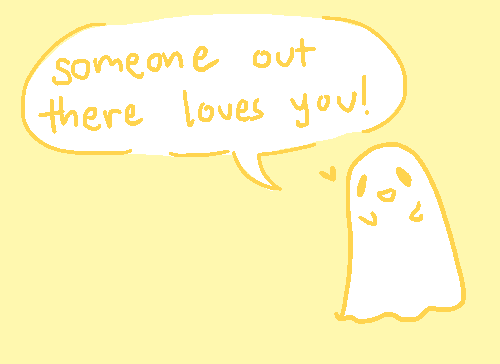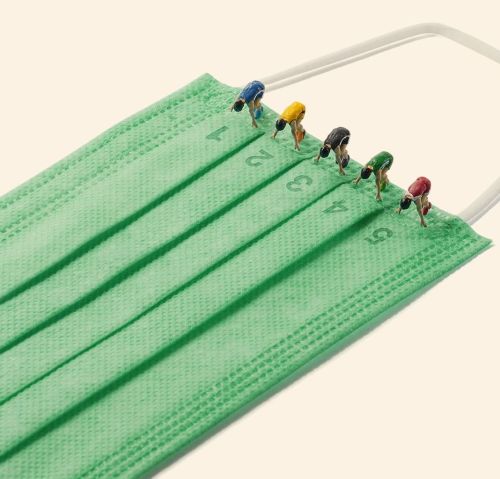Drtanyasinghsworld - What Can U Do? Do What U Can!

More Posts from Drtanyasinghsworld and Others

The best lesson I’ve learned is you can’t let people scare you. You can’t go your whole life trying to please everyone else. You can’t go through life worried about what everyone else is going to think. Don’t let the judgment of others stop you from being you. Don’t lose yourself. #nalielistyle #nalieliseoul (at WWW.NALIELI.COM)
“I think that some people forget that friendships and relationships are not a service that someone provides, it’s a two way street where both give and get.”
— Ignoble Savage

The “Mental Illness Recovery Series” book has 100 inspirational stories that explores the exhausting, but noble journey of recovery.
📍🗺 Where to buy it :) = http://awakesociety.com/mental-illness-recovery-book/ 🗺📍
Mental disorders found in the book:
🔻Depressive disorders
🧠Anxiety disorders
🔺Bipolar & related disorders
🧠OCD & related disorders
🔻Eating disorders
🧠Schizophrenia spectrum & psychotic disorders
🔺Conduct disorders
🧠Dissociative disorders
🔻Neurodevelopmental disorders
🧠Personality disorders

10 Rules for Living a Full Life
1. Be adventurous; move outside your comfort zone
2. Be kind to yourself and respect yourself
3. Don’t fear mistakes and failure. They are part of a rich life
4. Smile and laugh often; have a positive outlook
5. Play to your strengths, and use your gifts and talents
6. Be a friend to others; be compassionate and kind
7. Ask for help when you need it; a true friend will always care
8. Don’t let people distract you from your visions, dreams and goals
9. Don’t bear grudges; don’t be bitter; forgive others – and move on
10. Always strive to be better, and to stretch and grow through life.

Why do I cheat on my partner so easily in a dream?
Have you ever noticed in a dream you can cheat on your partner without having even a shadow of a doubt it’s the right decision? Well, it is definitely not your unfaithful nature; it is all about our brain’s workings, especially some parts of it which we are going to examine here.
The Frontal Cortex
The Frontal Cortex is located at the very front of the brain and is responsible for not only long-term planning, decision making, knowledge analysis and regulation of emotions, but also for social behavior control. This means that the frontal cortex prevents different types of inappropriate behavior, such as aggression, desires to steal, compulsivity and sexually assaultive behavior. As a result, damage to this lobe might cause, for example, a complete lack of interest in sex or, contrastively, more active sexual behavior. So why does this matter in terms of sleeping?

The Sleep Cycle
Our sleep cycle consists of two main stages: non-rapid eye movement (NREM) sleep and rapid eye movement (REM) sleep. During the latter stage, our body experiences temporal muscle paralysis and, more interestingly, — dreams (if you don’t have any brain damage that could lead to dream loss). The question about the purpose of dreams is still in dispute, but there is a clear answer at why they are ridiculously illogical sometimes:
during REM sleep, the frontal lobe is “turned-off” affecting our social behavior in a dream
There is also a range of research supporting this statement. For example, in one experiment, scientists activated the frontal lobe of the participants during REM sleep and noticed that such stimulation “induces self-reflective awareness in dreams”. In other words, you act more appropriately and logically as your frontal cortex is stimulated while sleeping:
Recent findings link fronto-temporal gamma electroencephalographic (EEG) activity to conscious awareness in dreams, but a causal relationship has not yet been established. We found that current stimulation in the lower gamma band during REM sleep influences ongoing brain activity and induces self-reflective awareness in dreams. Other stimulation frequencies were not effective, suggesting that higher order consciousness is indeed related to synchronous oscillations around 25 and 40 Hz.
Noticeable effects on dreams
As you can imagine, this temporal “shutdown” of the frontal cortex has a huge impact on our social behavior in a dream: from aggressive conversations to having sex with your partner’s best friend. Don’t feel guilty; it’s just your brain! What about moments when you act consciously in a dream and do things with full awareness of your actions?
Lucid Sleep
Lucid sleep is a sleep during which you are aware of dreaming while dreaming (apologies for the tautology). Recent studies suggest that this phenomenon occurs due to “increased brain activity over frontal regions during REM sleep”. However, other researchers analyze it through the states of consciousness theory. These two points of view are not interchangeable but complementary.
Now let’s look more closely at different states of consciousness:
- Primary states of consciousness — states in which dreams “are concerned with the immediate present, with only uncontrolled access to the past or the anticipated future”
- Secondary states of consciousness — states in which people are able to manipulate with “higher order cognitive functions such as self-reflective awareness, abstract thinking, volition and metacognition”. In the case of sleeping, this mode is “turned-on” after awaking
So, when both states coexist together, a person experiences a lucid dream. It is like being simultaneously asleep and awake! What is more, humans are most likely the only species able to experience such a thing.
Source: Anastasiia (Medium). Image: Katherine Streeter for NPR.

#WhatCanUdoDoWhatUCan //fb #kind #love #Act never fail to #Do.

“It’s knowing ‘hey, there’s thousands of people who follow my blog who are experiencing this exact thing.’ Even if I know exactly what’s happening, I can’t stop it, I just feel less alone because of the online community.”








Escape
Miniature Art by Tatsuya Tanaka (Follow the artist here)

Psychology Daily - Quotes
-
 poisontastessweet liked this · 6 years ago
poisontastessweet liked this · 6 years ago -
 jazminnn1997-blog liked this · 6 years ago
jazminnn1997-blog liked this · 6 years ago -
 la-chica-sol liked this · 6 years ago
la-chica-sol liked this · 6 years ago -
 courtneyannexwritings reblogged this · 6 years ago
courtneyannexwritings reblogged this · 6 years ago -
 jawwthepro liked this · 6 years ago
jawwthepro liked this · 6 years ago -
 pansexual-lizando-blog liked this · 6 years ago
pansexual-lizando-blog liked this · 6 years ago -
 loving-terre liked this · 6 years ago
loving-terre liked this · 6 years ago -
 palespygiantcalzone-blog liked this · 6 years ago
palespygiantcalzone-blog liked this · 6 years ago -
 mayyxrworlds liked this · 6 years ago
mayyxrworlds liked this · 6 years ago -
 hivho-blog liked this · 6 years ago
hivho-blog liked this · 6 years ago -
 peachy-bby1 liked this · 6 years ago
peachy-bby1 liked this · 6 years ago -
 keenweaseloperamonger-blog liked this · 6 years ago
keenweaseloperamonger-blog liked this · 6 years ago -
 memoria-errante reblogged this · 6 years ago
memoria-errante reblogged this · 6 years ago -
 mkat919 liked this · 6 years ago
mkat919 liked this · 6 years ago -
 drtanyasinghsworld reblogged this · 6 years ago
drtanyasinghsworld reblogged this · 6 years ago -
 drtanyasinghsworld liked this · 6 years ago
drtanyasinghsworld liked this · 6 years ago -
 hunterrrbabyyy liked this · 6 years ago
hunterrrbabyyy liked this · 6 years ago -
 scrpiogirl liked this · 6 years ago
scrpiogirl liked this · 6 years ago -
 vaisarah reblogged this · 6 years ago
vaisarah reblogged this · 6 years ago -
 vaisarah liked this · 6 years ago
vaisarah liked this · 6 years ago -
 fataltoki-blog liked this · 6 years ago
fataltoki-blog liked this · 6 years ago -
 sadgirlsera reblogged this · 6 years ago
sadgirlsera reblogged this · 6 years ago -
 september-wallflower-blog liked this · 6 years ago
september-wallflower-blog liked this · 6 years ago -
 marydudumozinho liked this · 6 years ago
marydudumozinho liked this · 6 years ago -
 artbynam liked this · 6 years ago
artbynam liked this · 6 years ago -
 parad0ja reblogged this · 6 years ago
parad0ja reblogged this · 6 years ago -
 chiarasophia1 liked this · 6 years ago
chiarasophia1 liked this · 6 years ago -
 theartykinz reblogged this · 6 years ago
theartykinz reblogged this · 6 years ago -
 barla-blog liked this · 6 years ago
barla-blog liked this · 6 years ago -
 dancin4eva2 liked this · 6 years ago
dancin4eva2 liked this · 6 years ago -
 justiceleague818-blog liked this · 6 years ago
justiceleague818-blog liked this · 6 years ago -
 fellings-world liked this · 6 years ago
fellings-world liked this · 6 years ago -
 butterflypunk reblogged this · 6 years ago
butterflypunk reblogged this · 6 years ago -
 butterflypunk liked this · 6 years ago
butterflypunk liked this · 6 years ago

